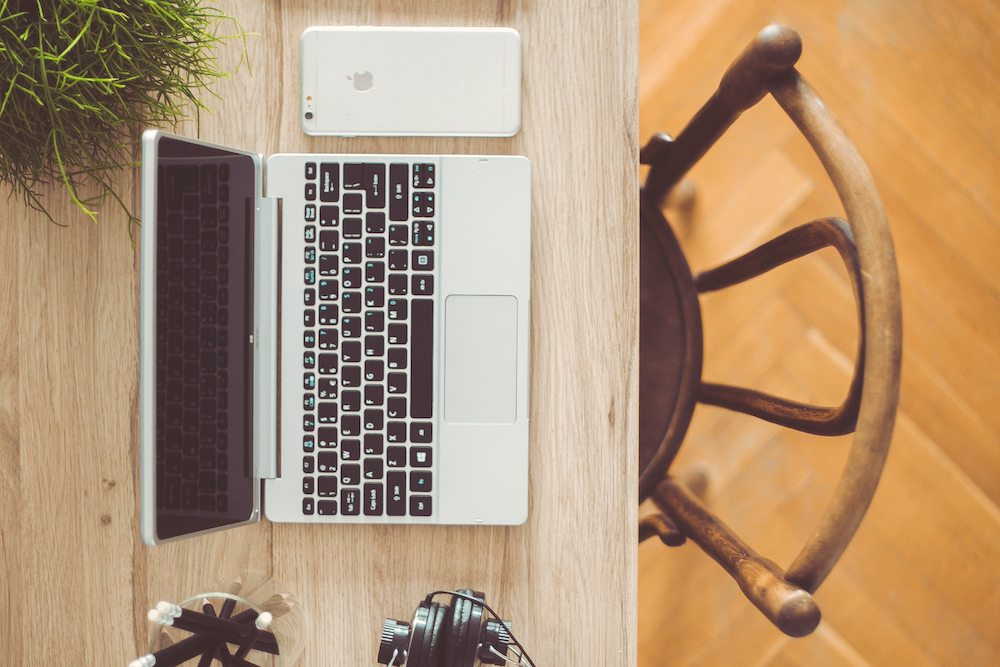Working from Home? Here are 6 Tips to a Productive Day at the (Home) Office

For many of us, the option of working from home is a luxury we wish our bosses would grant. The lucky among us already get to work remotely, whether it’s as part of a distributed team, a flex arrangement or as a self-employed freelancer. While there are those who can attest to just how awesome working from home can be, being surrounded by the comforts of home while you work comes with its own set of challenges.
In a traditional office, interruptions and co-workers are often the biggest peril to your productivity. In a home office, the biggest distraction is often yourself. What’s the saying? When the cat’s away, the mice will play? When no-one’s watching, it’s tempting to let go of those inhibitions and do things you normally wouldn’t do in an office office (like say, work in your pjs or stuff your face full of chips at 10am).
Here’s our guide to staying on task and working outside the office with top-notch efficiency.
Separate Work from Home, Literally

Not heading out to the office doesn’t mean you shouldn’t have a place specifically for work. Devote a consistent space within your home and avoid your couch and bed at all costs. The last thing you want to do is create any mental associations that mean you’re reminded of sleep and TV while you’re meant to be working—or running spreadsheets while you’re trying to relax.
Setting up shop doesn’t have to be complicated—a good desk (wide enough to handle a few piles of paper and your laptop) and an ergonomically comfortable chair (because let’s face it, you’ll be sitting in it all day) are really the only two things you need to physically separate your personal life from your professional life. Don’t skimp out the chair, it’s worth the investment considering that sitting is the new smoking.
Keep the Kitchen Stocked (with Healthy Snacks)

Working at home can mean two things for your nutrition: improvement or increased access to alluring snacks that will zap your energy levels and productivity. By keeping the kitchen stocked with healthy simple options (hello NatureBox!), you can keep temptation at bay. Not only that, but avoiding the corner store run for snacks can do wonders for your wallet (and your waistline).
Pretend You Are Going into the Office

Traditional offices can be super distracting, and that’s why working from home can be great for focus—but unless you pretend like you’re getting ready for a full day, you might find yourself back in bed, or worse, scrolling through your Facebook feed for hours. You don’t have to throw on your best threads, but at least shower and get out of your pjs so you feel more competent. Even wearing a pair of house shoes can make you feel like you’re fully dressed, and ready to work. (Pro tip: download a Facebook feed blocker extension and turn it on during working hours if you find yourself lured in by the never-ending stream of selfies and heated political arguments!)
Since remote work gives you the flexibility to set your schedule, it can be tempting to wake up late and let work bleed outside of normal working hours. Ditch the urge and start your day on time.
Structuring your day like a normal office day will help keep you focused and productive. Are mornings usually set aside for writing or checking emails? Then do the same at home. Save calls for the afternoon so you can take advantage of the morning motivation wave and pummel those projects without any distractions.
Get Your Toolkit in Order

Remote work relies heavily on your tech tools. In an office, you have access to an IT department, corporate computers and fast internet. Have the basics covered like a reliable laptop (with working camera and mic for video meetings), solid WiFi in your area and an external hard drive or access to cloud storage. It’s also a good idea to have a Plan B for internet, such as the ability to tether to your cellphone data. There’s nothing more embarrassing than saying to your boss “Hold on, my Internet isn’t working”. Seriously.
If you’re working with a lot of sensitive client data, consider investing in a paid VPN and anti-virus software. Better to beef up the cyber security now than deal with a data hack down the road.
Stay Connected… To Humans

Don’t forget you’re a human at the end of the day, which means we need connection and communication with other humans. While you may have chosen remote work for the benefit of being physically alone, working outside the office can get lonely. Maintaining a social connection, even in the absence of co-workers, will help keep you sane and energized.
Working from home gives you a bit more freedom to be flexible with your schedule. Take breaks when you need to—15 minutes for every 90 minutes of work goes a long way. Try logging your hours in a free online tracking tool like Toggl if you need a push to be more time-conscious. If you really don’t want to leave the house (or can’t), then get involved with a virtual community to make some remote relationships.
Communicate, Communicate, Communicate

Maintaining social connection for your sanity is one thing but keeping a pulse on what’s happening in the office is critical too. Understanding the expectations of your employer is important here—make sure you regularly communicate your efforts.
Status updates through email, calls, or a team collaboration tool (like Slack) will be appreciated. Be reachable whenever possible and if you’re going to be out, let your boss know that too.
Working outside of the office requires focus and strategy. Once you understand what goes into successfully managing your time and workspace, working remotely can be everything you hoped it would be.
Ninjas, what other tips do you have for working from home effectively? Share your tips and thoughts below!
I track my time too, but with the help of Tmetric since it’s more reasonable in price for me.
Thanks for the awesome tips. These are indeed great productive tips when it comes to working from home. I totally agree with having an ergonomically comfortable chair.
Reply
Thanks for the awesome tips. I am starting to see the benefits of really separating my personal and office life.
Yet another post I’m going share with my buddies on facebook. Thanks!
Another thing that helps is using a productivity tool. Seriously, it saves so much time and gives a kind of structure to the day. I use https://kanbantool.com/ and I think it’s great, also because it can serve multiple purposes. I use it to manage my task, as a time tracker and to-do list. What’s more, it prevents me from starting too many things at once.
These are indeed great productive tips when it comes to work from home. I totally agree with having an ergonomically comfortable chair and office desk as it will provide the dedicated work space which directly affects the productivity. I myself looking for a best chair for my office at https://theluxurychairs.com/
Work from home helps businesses in getting increased productivity, reduced costs, saved time plus employee flexibility. This results in greater employee company bonding. Toosl like webex R-HUB web video conferencing servers etc. are widely used by individuals and busiensses globally for remotely working form home.
I have decided to start working from home, so I really appreciate this information on how to make it productive. I like how you point out the importance of making the space you work in feel like work by getting a nice chair and desk. I think I will be working in a bit of an unorthodox location, so I think it would be a good idea to look into a custom desk that will fit the space nicely. Thanks again for these insights! http://www.rossjoinery.com.au/study-home-office-desks/
Hi Anneke,
Glad you enjoyed the article! I haven’t been freelancing for too long myself, and have yet to implement most of these tips myself. I work in my kitchen at my breakfast bar for starters, and there is always a stash of something sweet or salty in my pantry ;)
I’m slowly adapting to these challenges as well. But every day I practice these habits is another day closer to reaping real productive benefits!
Hi Jennee
Thank you for a great article. It’s great to look back on the time I’ve been freelancing and see how I’ve adapted to the challenges. These tips are great – and although I’m a bit of a routine rebel – I’m starting to see the benefits of really separating my personal and office life, even though it’s in the same house. ;)
How long have you been a Freelance Writer? Was it an easy start for you?